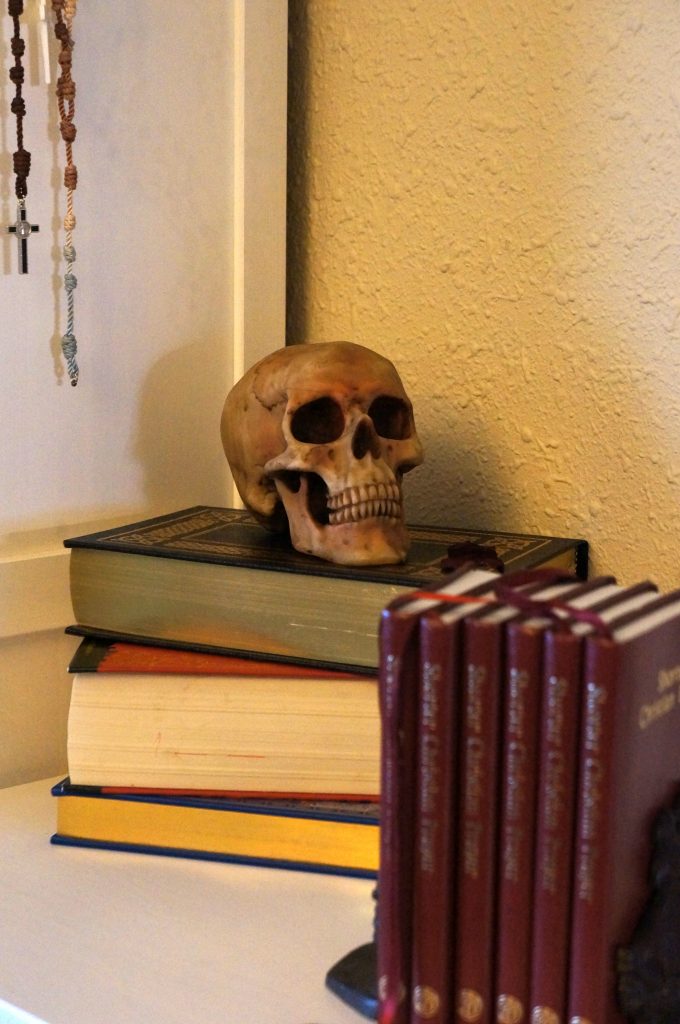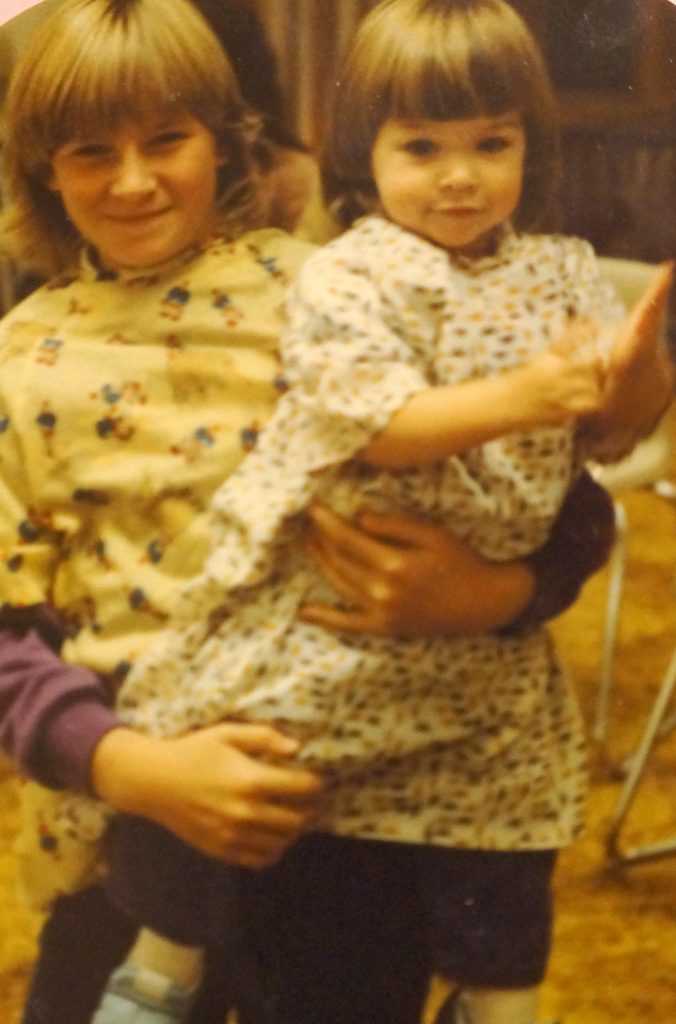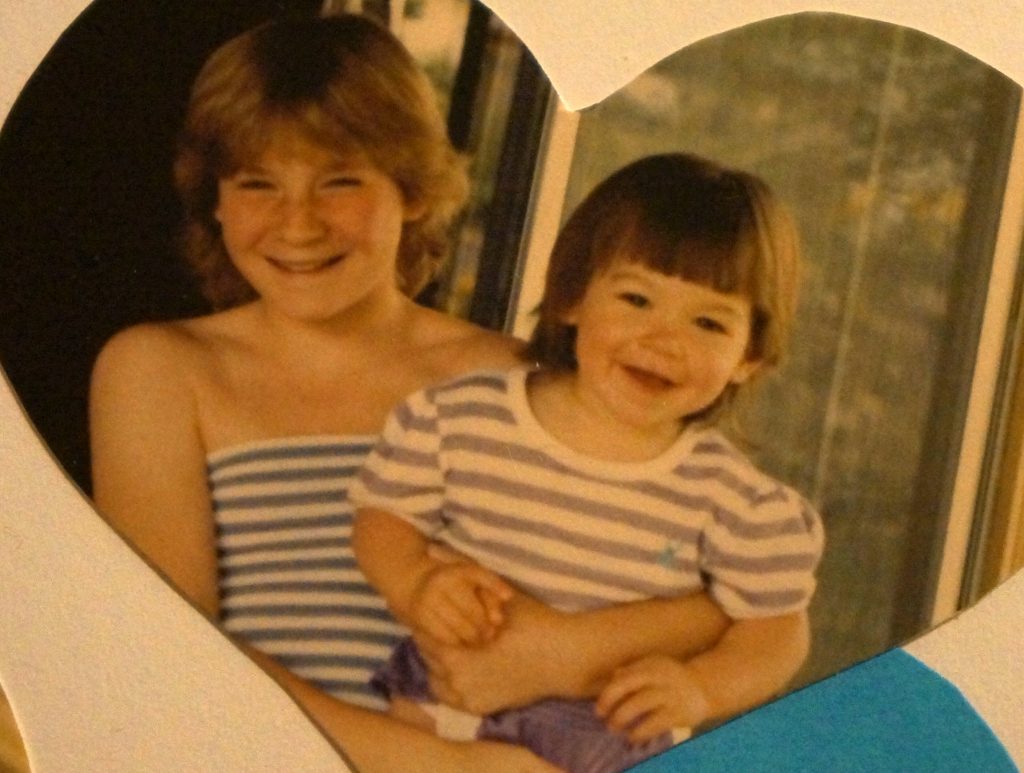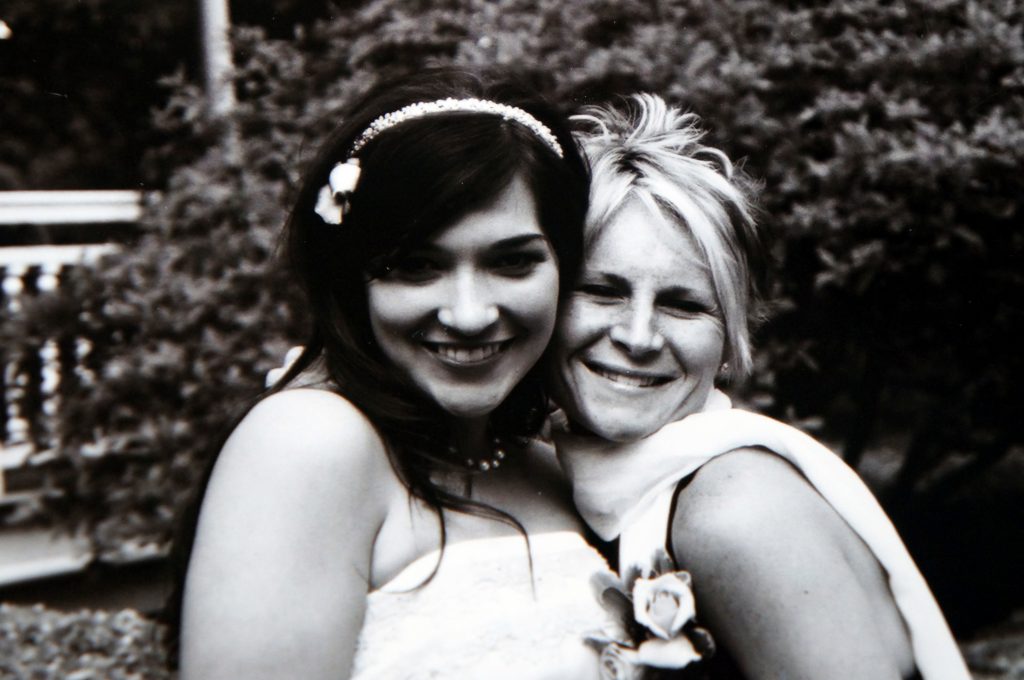For years, I was disturbed by my brother’s obsession with skulls. He put skull stickers on his drums, incorporated skulls into his tattoos and clothing, even decorated with skulls. From my perspective at the time, he was flirting with a dark, dangerous part of life; maybe even glorifying evil.
A few years ago, I jumped on the Lenten bandwagon of the memento mori movement, which was an ancient monastic practice reframed and repopularized by Theresa Aletheia Noble, FSP. Memento mori, Latin for “remember your death”, is an ancient practice of prayer — the reality of death ever before us illuminates our everyday actions in the context of eternity. One day we shall die—that is an inevitability. What do we do with this time? With our daily actions? The thought is sobering. But, rightly presented and understood, it is surprisingly not morbid.
It suddenly occurred to me that my brother might not be crazy. In fact, considering all he’s been through in his life, it made a whole lot of sense. My brother was a drug addict for years and I know came very close to death more than once; he also lost friends along the way to drugs. He now lives as though his life is a miraculous gift—because it is. I wonder if skulls are a reminder to him of his own mortality, something he’s probably been more aware of than I have of my own.

I bought a ceramic skull for our altar. During Lent, it sits below our icons. It weirded my kids out the first year, which made me even more glad it was there. Death is unsettling. Having been created in the image of God, death was not what we were intended to endure. But now, because of Jesus’ sacrifice on the cross, we look forward to the Resurrection: death is a passage.
For school, my daughter and I have been reading aloud together Everyman, a short play from the 16th century written by an unknown cleric about a man journeying towards death. He is abandoned first by Fellowship and Kinsmen, and gradually by everyone and everything he depended upon in life; towards the end he is abandoned even by Beauty and Wits. The man begs to be accompanied, but is repeatedly reminded he will ultimately meet death alone—save for Angel, who meets him with this greeting: “Come excellent elect spouse to Jesu: Hereabove thou shalt go/…/Now shalt thou into the heavenly sphere,/ Unto the which all ye shall come / That liveth well before the day of doom.”
Sometimes in our society today with so many distractions it’s hard to practice memento mori. But this year, with the threat of the coronavirus touching every part of life, it’s very real. People respond to this fear in different ways (some people hoard toilet paper, for example). In Oregon right now, we’re in a mandated lockdown; we’re only allowed to leave our homes for necessary outings. The fear of death has trickled into every corner of life. Yet, death is always here with us, even in times without pandemics. Maybe a hidden blessing in times like this is that we see for ourselves that the chasm that separates us from death is paper-thin. Life is a beautiful gift: yes, fight to live, protect life, celebrate and nurture it. But death, though ugly and terrible, need not be feared; it’s already been defeated. Through death, our life is illuminated. To see it before us is a more true way of living.



